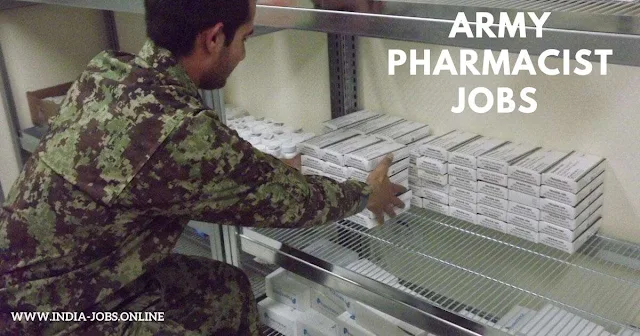Introduction Army Pharmacist Jobs
Army Pharmacist Jobs: A Vital Role in Military Healthcare, When we think of military personnel, we often envision soldiers in uniform, ready to defend their country. However, behind the scenes, a diverse team of professionals plays a crucial role in ensuring the health and well-being of our armed forces. Among them are army pharmacists, who provide essential pharmaceutical care to servicemen and women. In this article, we will delve into the world of army pharmacist jobs, exploring their responsibilities, qualifications, and the unique challenges they face in military healthcare.
The Role of Army Pharmacists
Army pharmacists are integral members of the military healthcare system, tasked with ensuring that soldiers receive the right medications and pharmaceutical care, both in times of peace and during deployments. Their responsibilities encompass a wide range of duties:
Medication Dispensing: One of the primary responsibilities of army pharmacists is to dispense medications prescribed by military healthcare providers. They carefully review prescriptions, calculate dosages, and provide the necessary medications to military personnel.
Medication Management: Army pharmacists are responsible for managing the inventory of pharmaceuticals, ensuring the availability of essential medications, and keeping track of expiration dates. This role is crucial in maintaining a ready and efficient healthcare system within the military.
Patient Counseling: Army pharmacists offer patient counseling and education on medication usage, potential side effects, and interactions. They play a crucial role in promoting medication adherence and patient safety.
Compounding: In certain situations, army pharmacists may be required to compound medications, creating specialized formulations or adjusting doses to meet specific patient needs.
Clinical Support: Some army pharmacists work directly with healthcare teams in military hospitals or clinics, participating in patient rounds, reviewing medication regimens, and providing recommendations for therapy adjustments.
Research and Development: Military healthcare often involves unique challenges, such as combat-related injuries or diseases. Army pharmacists may be involved in research and development efforts to find innovative pharmaceutical solutions to these challenges.
Qualifications and Training
Becoming an army pharmacist requires a combination of education, training, and military service commitment. Here are the key steps:
Education: To become an army pharmacist, you must first earn a Doctor of Pharmacy (Pharm.D.) degree from an accredited pharmacy school. This typically involves four years of undergraduate education followed by four years of pharmacy school.
Licensure: After completing pharmacy school, you must obtain a state pharmacy license, as army pharmacists must meet the same licensure requirements as civilian pharmacists.
Army Commissioning: To serve as an army pharmacist, you must be commissioned as an officer in the U.S. Army. This typically requires attending the Officer Candidate School (OCS) or the Reserve Officer Training Corps (ROTC).
Military Training: Once commissioned, you will undergo military training, which includes learning about military structure, culture, and values. You will also receive specific training related to your role as an army pharmacist.
Deployment: Army pharmacists should be prepared for deployment, as they may be assigned to various locations around the world, including combat zones, to support military operations.
Challenges and Rewards
Working as an army pharmacist comes with its own set of challenges and rewards:
Challenges:
Deployment Conditions: Army pharmacists may find themselves in austere environments, working in field hospitals or combat zones.
Unique Patient Population: Military personnel may have unique healthcare needs, including combat-related injuries and post-traumatic stress disorder (PTSD). Army pharmacists must adapt to these specific challenges.
Limited Resources: In some deployment situations, resources may be limited, requiring army pharmacists to be resourceful and creative in providing pharmaceutical care.
Rewards:
Serving the Nation: Army pharmacists have the opportunity to serve their country and contribute to the well-being of those who protect it.
Diverse Experiences: The military offers a wide range of experiences, from working in combat support hospitals to contributing to humanitarian missions around the world.
Career Advancement: The military provides opportunities for career advancement, education, and leadership development, which can be valuable for future civilian pharmacy careers.
Conclusion
Army pharmacist jobs are vital to the overall health and readiness of the U.S. military. These dedicated professionals play a critical role in ensuring that military personnel receive the pharmaceutical care they need, wherever they may be stationed. While the challenges of this career path are significant, the rewards, both in terms of service to the nation and professional development, are equally substantial. Army pharmacists exemplify the intersection of healthcare and military service, making a lasting impact on the lives of those they serve.


